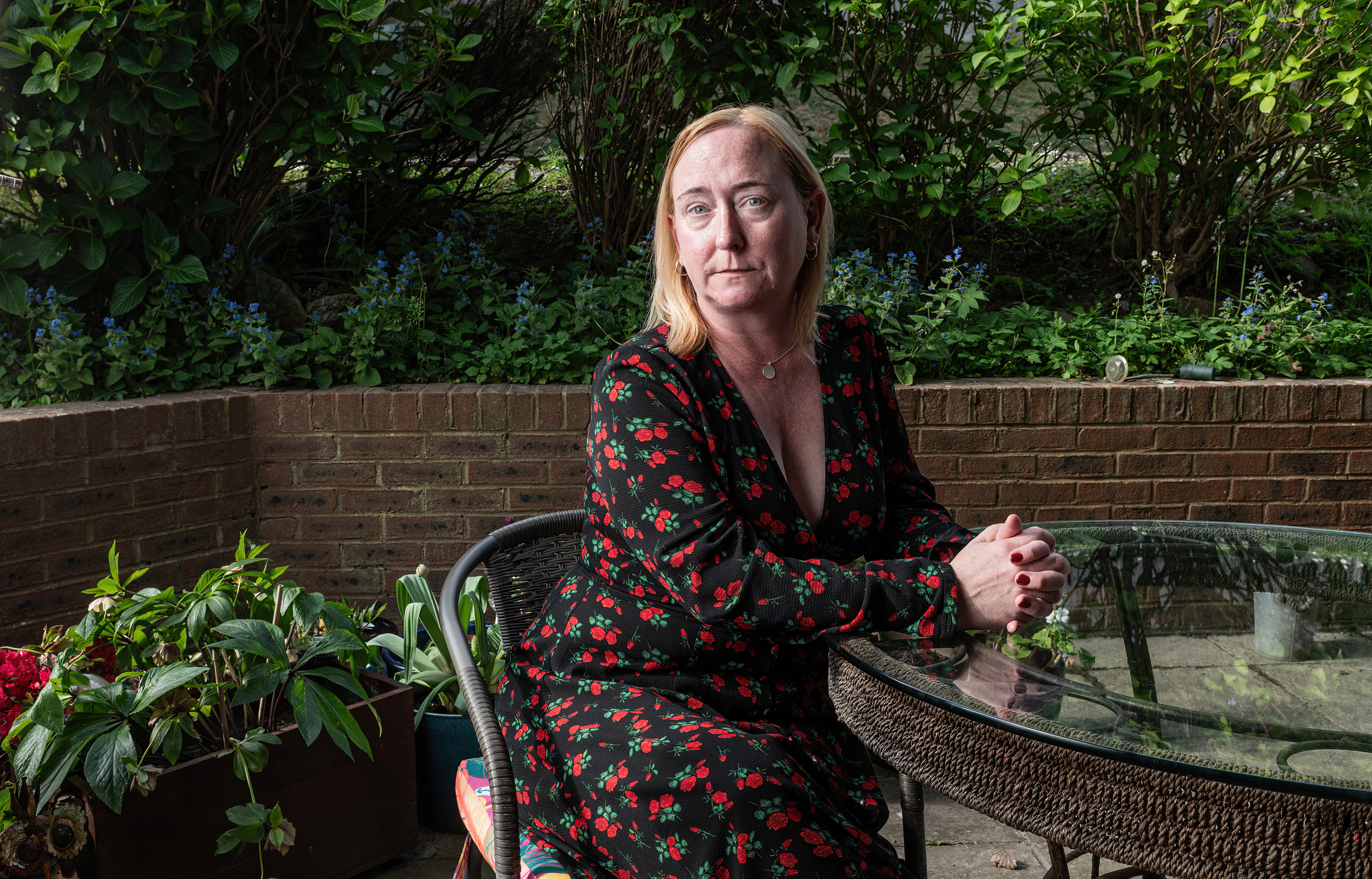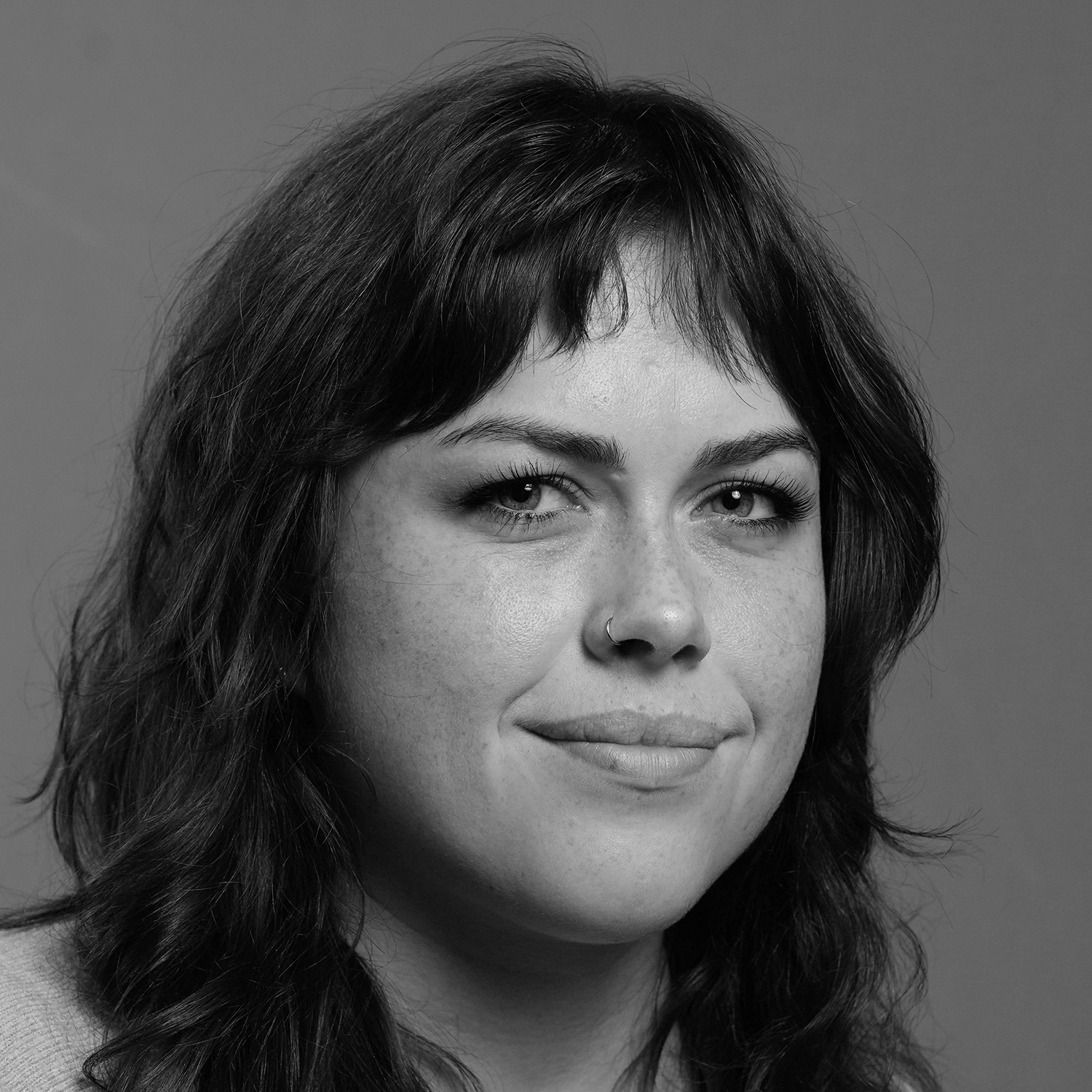Photograph by Sonja Horsman
Nicola Packer was still bleeding from major surgery when she was arrested, escorted by two police officers out of hospital, put in the back of a van and taken to Charing Cross police station.
She saw strangers’ faces, patients and staff staring at her. “You look around to see if people are looking at you, thinking, ‘Oh my God, what has she done?”
Packer is sitting on her sofa at home in a small seaside town. The living room leads out on to a patio covered in flower pots, where she likes to spend her evenings after work.
She was arrested more than four years ago but Packer still lives with the aftermath every day. “If I see police officers walking down the street, I’ll cross the road,” she says. “I would avoid going to hospital now for any reason, if I could.”
Last Thursday, at the end of a three-week trial, Packer was found not guilty of knowingly taking abortion pills after the legal limit.
It is legal in the UK to have an abortion up to 24 weeks, but after 10 weeks telemedicine cannot be used. She could be the last woman in Britain to be tried for this crime if a fight in parliament to overhaul abortion laws gains enough support. Under the law, which dates back to 1861, it is illegal to buy and take abortion pills with the intent to cause a miscarriage after 24 weeks of pregnancy.
‘You watch what that does to a person, and you watch your friend diminish before your eyes. They are fearful every day’
‘You watch what that does to a person, and you watch your friend diminish before your eyes. They are fearful every day’
Helle Tumbridge, friend
An increasing number of women have been put on trial for ending their pregnancy in this way. Packer is one of six to have appeared in an English court since December 2022. Previously, only three trials had been held since the law was introduced.
In Packer’s case, evidence seen by The Observer shows how the Metropolitan Police and the CPS advocated for her case to continue to trial.
The CPS refused in 2021 to move forward with the Met’s initial charge, which the force then appealed.
Newsletters
Choose the newsletters you want to receive
View more
For information about how The Observer protects your data, read our Privacy Policy
An officer said the decision to arrest Packer on 8 November 2020 went “all the way up the chain”. The Metropolitan Police said it was “mindful” the case would have been “incredibly difficult” for Packer but that its “officers conducted a proportionate and evidence-led investigation”.
The CPS has said its prosecutors “exercise the greatest care when considering complex and traumatic cases such as this one” and that since July 2022, decisions in abortion cases like Packer’s were made at the “most senior level”.
It was 2 November 2020, when Packer took a pregnancy test. She had recently been feeling unwell, but having long struggled with chronic indigestion and endometriosis, a painful condition where tissue similar to the uterus lining grows outside of the womb, she thought little of it. When the test showed positive, she immediately went online and booked in for a termination.
At-home abortions for early stage pregnancies had been approved that March as a response to the Covid pandemic, after years of calls from abortion providers to offer telemedicine to make the service more accessible. After telephone consultations, Packer was prescribed two medications – mifepristone and misoprostol – for her to take at home.
Based on the date of what she believed had been her last period, and as she had no other symptoms, Packer believed she was about six weeks pregnant. But after taking the pills, she found herself in the early hours of 7 November giving birth in her bathroom to what she now knows was a 22 to 26-week-old foetus.
Still in shock, Packer arrived at Charing Cross Hospital’s A&E with the foetus in a rucksack, wrapped in scarves. She initially didn’t tell medics she had taken the pills, worried she wouldn’t receive the care she needed.
But after transferring to Chelsea and Westminster hospital for more treatment, she told the midwives. “I thought I could trust them,” she says. They called the police, a move described by Dr Jonathan Lord, a leading consultant, as “an egregious breach of confidentiality”.
The trial, which lasted nearly three weeks, was the culmination of more than four years of investigation, during which Packer’s sexual and medical history was combed through by police and prosecutors, her urine forensically tested for more than 200 drugs, her phone checked for suspicious Google searches, and her earnings spent on thousands of pounds of legal costs.
As abortion rights are rolled back in many parts of the world, particularly the US, there is movement in the UK parliament to bring the law up to date and to end the practice of prosecuting women for abortion.
More than 30 medical, legal and public health bodies have been calling on MPs to take urgent action on the issue.
This week, Labour MP Tonia Antoniazzi tabled an amendment to the crime and policing bill that would decriminalise abortion in England and Wales. Antoniazzi, who came to court to hear some of Packer’s evidence, told The Observer: “The true injustice here is the years of her life stolen by a law written decades before women had the vote. This is utterly deplorable, and it is not justice. I do not see how this law can be defended any longer.”
The unanimous verdict in Packer’s favour was announced at Isleworth crown court. “It seems like a whole other lifetime ago,” she says. Helle Tumbridge, Packer’s friend who has supported her through the investigation and trial, sits beside her. When Packer first told her what had happened, she was sure her friend would be OK – that the charges would be dropped, that no one would try to put her in jail for what she was sure was a horrible, tragic mistake.
“All these long years, I kept saying to Nikki, this is crazy,” Tumbridge says. “Don't worry, it's going to go away. How could they possibly bring it to trial? And then we're sitting in a court.”
When the jury retired to consider the verdict, Tumbridge was no longer convinced her friend would be OK. “It was terrifying I didn’t know which way it was going to go. We were gripping each other’s hands so you could see the bone and literally shaking, and just like shutting our eyes and trying not to cry.. I don’t believe in God, but I was praying.
“I think people need to understand the impact of four and a half years of this. You watch what that does to a person, and you watch your friend diminish before your eyes. They don’t bounce around like they used to, they don’t smile like they used to. They’re fearful every day.”
According to abortion providers, for every woman who ends up in court, at least 10 others are subjected to prolonged police investigations – some of which have led to children being separated from women who were then never formally charged.
Critics have argued that cases such as Packer’s should be used as justification to roll back access to an at-home abortion for women in England. About 60% of the roughly 250,000 women who access abortion through the NHS every year now choose to take the pills at home, according to the most recent government figures.
Lord believes that inaccuracies in determining the gestation of the foetus are “extremely rare” – about 0.04% of cases, a figure healthcare professionals hope to reduce further.
Packer turned 46 this week, but her early 40s have hardly felt real. “The last four and a half years have just been so concentrated on: when is the trial going to happen? How am I going to get through it? You kind of forget that you used to do loads of things before this happened, and your whole life just becomes about that one thing. You’re doing it, but you’re not entirely there. You’re always thinking about the other thing you have hanging over you.”
Packer who is sitting in front of a copy of Helena Kennedy’s book, Misjustice: How British Law is Failing Women, is to file a complaint with the Metropolitan Police and the Crown Prosecution Service over her treatment during her arrest and the decisions made in the subsequent investigation. “This was a terrible accident,” she says. “I really do hope I’m the last person to ever go through this. It’s absolutely awful. Soul-destroying.”



